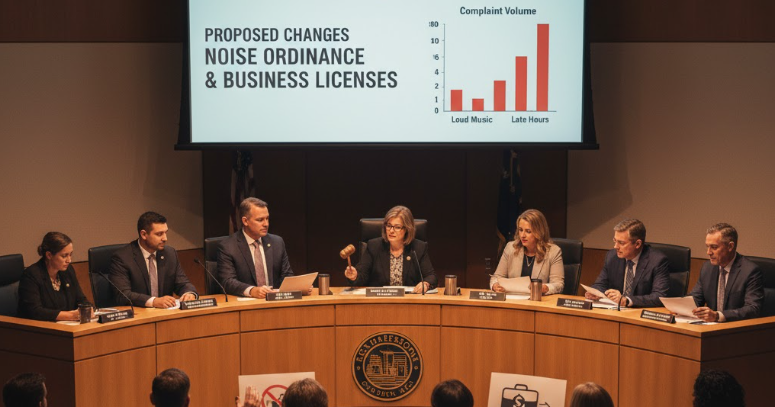Anderson City Council to Vote on Noise Ordinance and Business License Amendments
Electric City Shoutouts
Archives
Anderson City Council to Vote on Noise Ordinance and Business License Amendments
SIGN UP FOR OUR NEWSLETTER
Anderson City Council to Vote on Noise Ordinance and Business License Amendments |
Proposed changes aim to enhance community tranquility and align business regulations with state mandates |
The Anderson City Council is set to deliberate on significant amendments to the city's noise ordinance and business license regulations in its upcoming meeting.
In response to growing concerns about noise disturbances, the council is considering revisions to Division 3 of Article II, Chapter 42 of the Environmental and Nuisance Code. These changes aim to provide a clearer definition of "unreasonable" noise and grant the Police Department enhanced authority for consistent enforcement across all neighborhoods.
Under the proposed ordinance, enforcement will be complaint-driven, with officers responding to resident reports of noise issues. Notably, exemptions are included for events such as weddings, funerals, and large church gatherings, acknowledging that not all loud sounds constitute nuisances. |
Violators could face fines ranging from $500 to $1,032, with the new rules taking effect immediately upon adoption. Councilman Luis Martinez emphasized that the measure seeks to establish a clearer, fairer framework for enforcement rather than imposing harsher restrictions.
Additionally, the council will cast a final vote on revisions to the business license ordinance to comply with a statewide mandate requiring uniform tax classifications for businesses. This procedural yet financially significant move aligns Anderson's rates with state guidelines while maintaining consistency with other South Carolina cities.
City Chief Financial Officer Margot Martin indicated that the updated schedule reflects recent data from the North American Industry Classification System (NAICS), which bases license rates on average business profitability using IRS data. The update, effective January 1, 2026, is projected to cause a revenue decrease of about $119,000, a shortfall already factored into the fiscal 2026 budget.
These proposed amendments underscore the council's commitment to enhancing community well-being and ensuring regulatory compliance, reflecting a proactive approach to addressing resident concerns and aligning with state mandates.
City of Anderson, SC located at 401 Main Street, SC, 29624. Council member details are located here |


